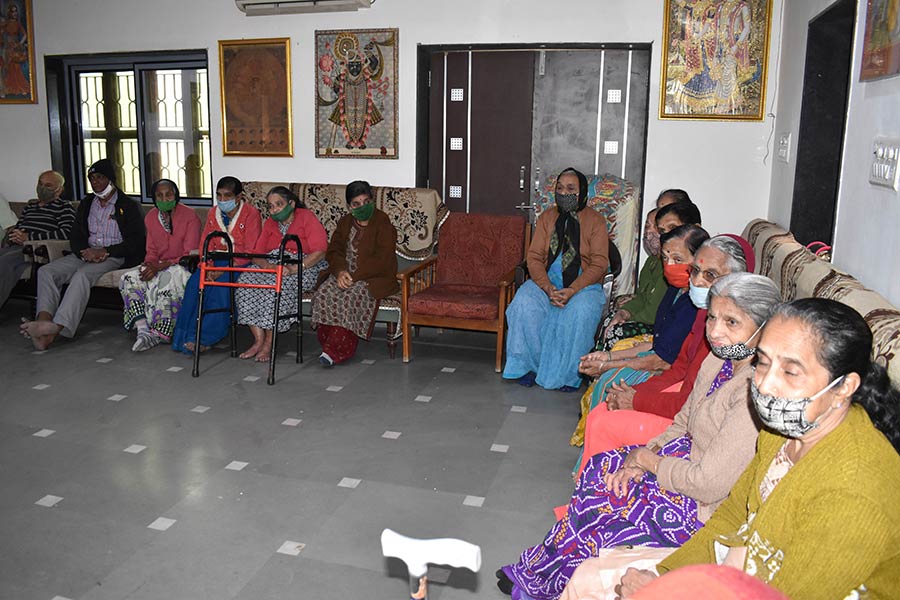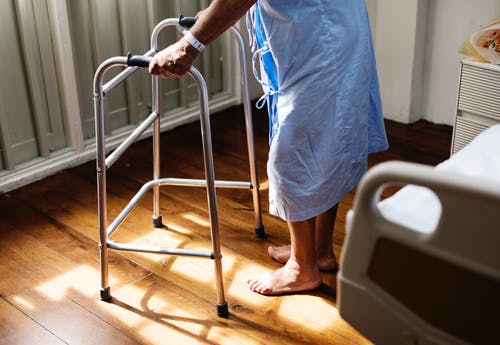Social issues:
1. Family status:
Not only in older adults, the status of the family affects each and every family members lifestyle.
It is presumed that the family is responsible to take care of the material and non-material needs
of the dependent older adults. During older age, the risk of a change in employment status,
marital status are high. In these conditions, the older adults are totally dependent on their
families.
2. Living arrangement:
In India, older adults usually reside with their children, which is not the case in western families.
Elderly parents co-residing with their children serves a dual purpose: children can take care of
their parents’ health and daily needs, while parents can provide childcare for young and
grandchildren. These are the non-financial aspects of co-residence that typify a joint living
arrangement. Other benefits include those to elder health, particularly in terms of the
relationship between co-residence and self-rated health and chronic and short-term morbidity.
3. Financial stress
Elderly people, in comparison with other working-age population, bear significantly higher risk of
financial stress due to diminishing physical and mental ability and vice versa. In context of
resource-constraint setting, the situation of elderly poverty is more critical due to the absence of
effective social safety nets, lower coverage of health insurance, and necessary social, transport
and recreational infrastructure to meet the special needs of the old age. Various Pension Plans
and programmes have been initiated by the Government of India to overcome the burden of
financial stress among the elderly.
4. Work history
Currently, Asia has the largest number of world’s elderly. This pressure of increasing number is
expected to intensify in the next 50 years. Mostly people in India, are of the working class after
getting retired people face problems as their routine is changed. Also they become financial
dependent on other members of the family, and some are dependent on their pension plans. It
is difficult for them to spend their time after retirement and to maintain their financial status.
5. Education
It is seen that if a person is educated he/she will have a better lifestyle, financial status and
living condition in the older age. A lack of formal education has been shown to be related to a
greater risk of dependency on the others. This is particularly important in the Indian setting as
education levels of older Indians are very low; it has been estimated that 73% of persons above
60 in India are illiterate.
6. Daily activities
Assisted living no longer means retiring to a rocking chair to watching TV. There are other
plenty of ways in which the older adults can spend their enjoying things. They can get engaged
in various activities like group exercise classes, playing games (puzzles, board games) and
other outdoor activities (walking, gardening, yoga, etc.). All these activities will keep the older
adults busy and active.
7. Importance of caregivers
Caregivers are tasked with important duty of providing support and encouragement for the older
adults as well as themselves. Communication is the key in the relationship between a caregiver
and the older adult. It is important to both openly share feelings and remain empathetic to the
situation. Caregivers may help with the daily activities such as toileting, dressing, bathing, etc.
They can also help in preparing meals, doing chores or laundry, shopping for groceries or
paying bills. In Indian context, the caregivers are usually the family members of the older adults
who help and stays with them only. The older person’s own caregiving responsibility, as the
older people who are caregiving for family members may be reluctant to report their own
symptoms any resulting medical procedures or hospitalization will interfere with caregiving.
8. History of losses and trauma:
Trauma is another nascent topic in ageing. It is normal in later life to reflect losses, personal
history, and role changes. However, older adults with a history of trauma may experience
resurfaced memories and the impact of traumatic events at a time may experience resurfaced
memories the impact of traumatic events at a time in life when their ability to engage in
avoidance thinking or behavior has diminished. Older adults with dementia may be particularly
at risk and exhibit distressing behavioral disturbances as a result.
9. Substance abuse:
The population of elderly substance users is gradually increasing over the years in India due to
the aging population and changing demographics. Hence, clinicians are likely to encounter a
larger proportion of elderly substance users with time.
10. Living alone is one of the major reason. It leads to feeling isolated or lonely, accidents
performing daily routines, irregular intake of medicines. It is observed that a larger number of
older persons preferred to live alone or with their spouse only. And though they enjoyed their
independence, problem for them lies in their “financially dependent” on others.




